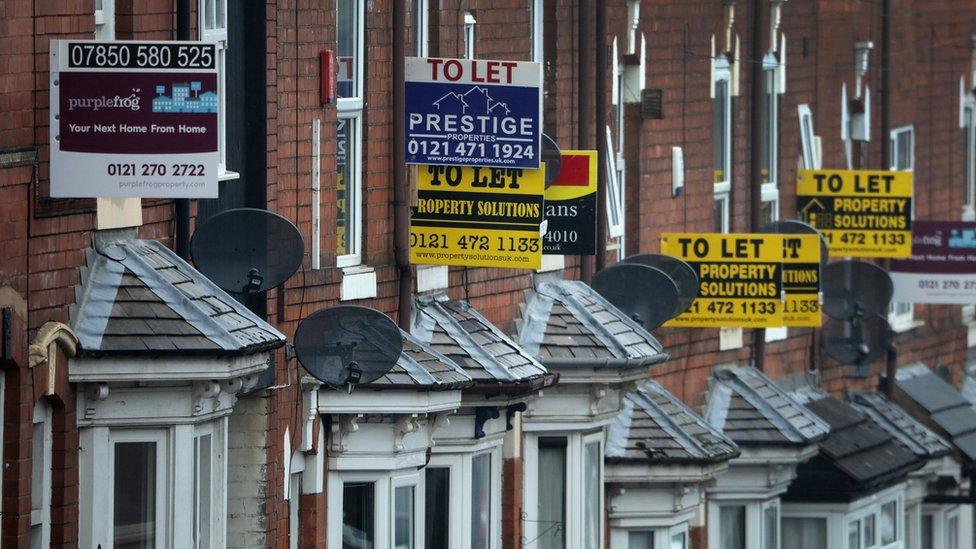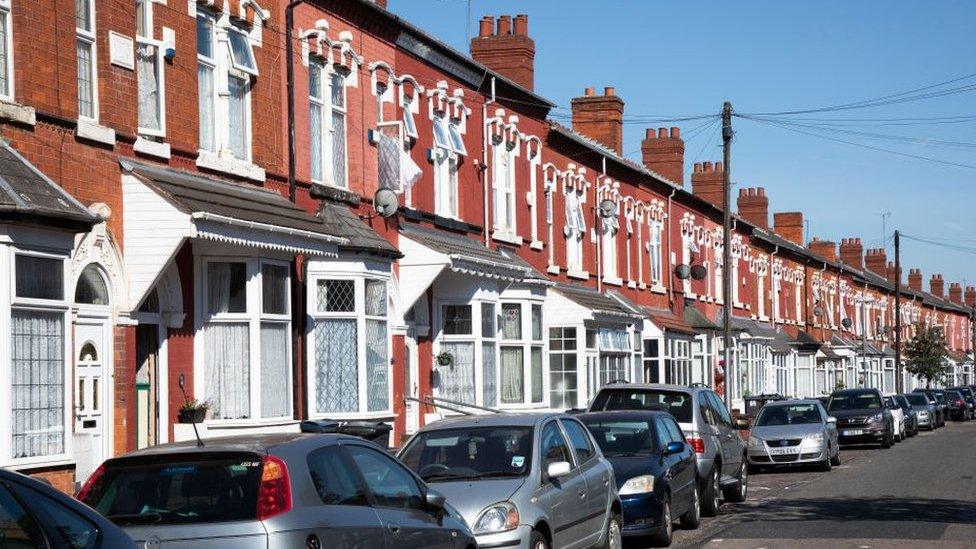Coronavirus: Number of renters in arrears doubles, says charity
- Published
- comments

The number of private tenants in England who have fallen behind on rent has doubled during the coronavirus pandemic, new research suggests.
Polling for housing charity Shelter estimated 226,785 are now in arrears despite having been up to date in March, out of a total of 442,403.
It said the figures showed the need for action before a ban on new evictions ends next month.
The government said those hit hardest would get "appropriate protection".
A ban on new evictions of social or private tenants in England and Wales has been extended for two months and is currently due to end on 23 August.
But the charity Shelter is warning that the winding down of the government's furlough scheme could leave people even more exposed to eviction if they lose their jobs.
A Shelter poll of 1,058 private renters in England conducted by YouGov estimated 442,403 of the country's 8.7m renters - roughly 5% - were in arrears in early June.
Of them, 226,785 said they were up to date with payments in March, before the height of the pandemic.
Of those who had contact with their landlord or letting agent since March, around 6% of those surveyed said they had been threatened with eviction.
Around a third of respondents said they feel more depressed and anxious about their housing situation, with 30% also experiencing sleepless nights.
Law change urged
The charity's chief executive Polly Neate said thousands of renters were at risk of homelessness unless the government changed the law on evictions.
"We know people have been doing whatever they can to pay their rent and keep their home safe," she said.
"Despite this, the minute the evictions ban lifts, the 230,000 already behind with their rent could be up for automatic eviction if they've built up eight weeks-worth of arrears," she added.
She called on ministers to make "small changes" to eviction law to ensure no renter is automatically evicted, and the impact of Covid-19 is "always considered".

SOCIAL DISTANCING: What are the rules now?
EUROPE LOCKDOWN: How is it being lifted?
FACE MASKS: When should you wear one?
TWO METRES: Is less than 2m safe?

The Scottish government has amended legislation to prevent new evictions for up to six months for those struggling with arrears.
In Northern Ireland, a requirement for a 12 week notice to quit period for all tenancies became law in May.
Responding to Shelter's polling, Labour said emergency legislation was needed to protect renters from eviction.
Shadow housing secretary Thangam Debbonaire said: "The government seems to be more interested in protecting landlords' incomes than preventing families from losing their homes in the middle of a deadly pandemic.
"Rough sleeping had more than doubled under the Tories before coronavirus.
"If we go back to business as usual, many thousands of people will find themselves sleeping on the streets this winter."
'Appropriate protection'
The Ministry of Housing, Communities and Local Government said it had taken "unprecedented action to support renters during the pandemic".
"We have introduced the furlough scheme to protect jobs, provided over £6.5bn to strengthen the welfare safety-net," a spokesperson said.
They added the government had also made the housing benefit system more generous by increasing it to cover 30% of the average market rent in each area.
"We're working with the judiciary to provide appropriate protection to those who have been particularly affected by coronavirus when proceedings start again."
The National Residential Landlords Association said it had produced guidance for tenants and landlords on how to best address rent arrears.
Its policy director Chris Norris said eviction "should not be seen as the inevitable outcome of getting behind with rent payments".
"Our surveys show that the vast majority of landlords have been doing all they can to keep people in their homes," he added.
- Published2 June 2020

- Published1 April 2020
